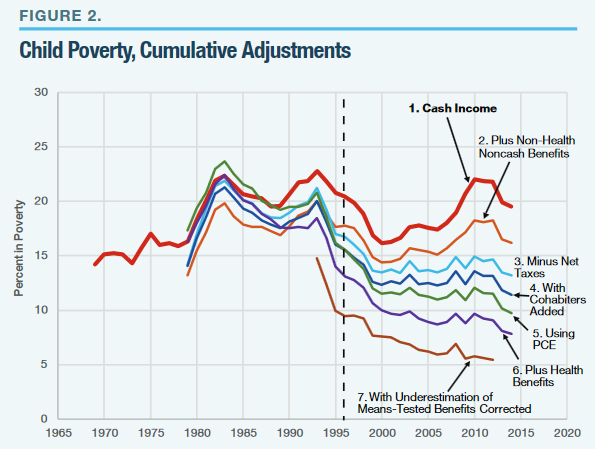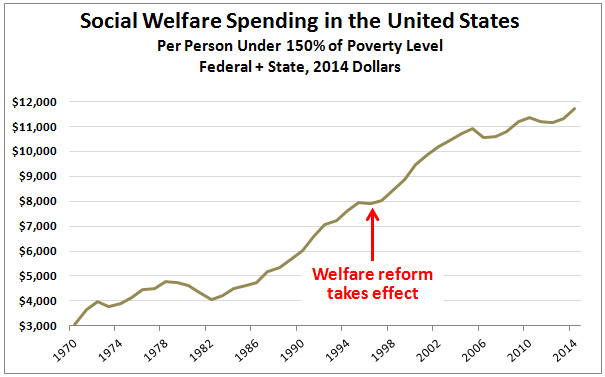I have my issues with Scott Winship and the way he calculates income and inflation, and in particular I continue to wrestle with his contention that PCE is generally a better way of measuring the cost of living than CPI. That said, he also has some good points to make. This week, on the 20th anniversary of the Welfare Reform Act, he’s released a paper suggesting that since it was passed in 1996 child poverty has decreased dramatically—but only if you measure it right. If you measure only cash income, poverty has increased. But if you also account for welfare benefits, as you should, it’s gone down. Here’s his key chart:

I have a couple of issues with this. I remain skeptical of PCE for this particular kind of measurement, and I doubt that health benefits should be counted as part of a poverty measure. (Winship defends the inclusion of health benefits in an appendix.) Still, the overall picture suggests that actual poverty has been decreasing for a long time, and continued decreasing after 1996. Winship makes the same argument for deep poverty (income less than half the poverty level) and extreme poverty (living on $2 per day).
Is this due to welfare reform? I doubt it. In this and other charts, Winship shows the poverty rate declining since about 1980. I’d guess that this is the reason why:

Roughly speaking, we spend nearly a trillion dollars more on social welfare programs than we did three decades ago. That’s about $8,000 per low-income person. This spending increased steadily during the 80s, steadily during the 90s, and steadily during the aughts. The amount of money we’ve spent dwarfs anything that welfare reform did or didn’t do.
More to the point, there’s simply no way that this amount of money hasn’t reduced poverty. There are really only two alternatives here:
- Social welfare spending has reduced poverty considerably.
- Throwing even vast amounts of money at poverty doesn’t work, so we might as well give up.
I wouldn’t support welfare spending at all if it truly had the minuscule effect that partisan studies sometimes seem to show. I support it because I think it’s done some real good. I think it’s increased living standards for the poor, increased health care for the poor, and increased food security for the poor. I’d like to see us do more, but not because we haven’t made a dent in poverty. I support it because I think it has made a dent.














